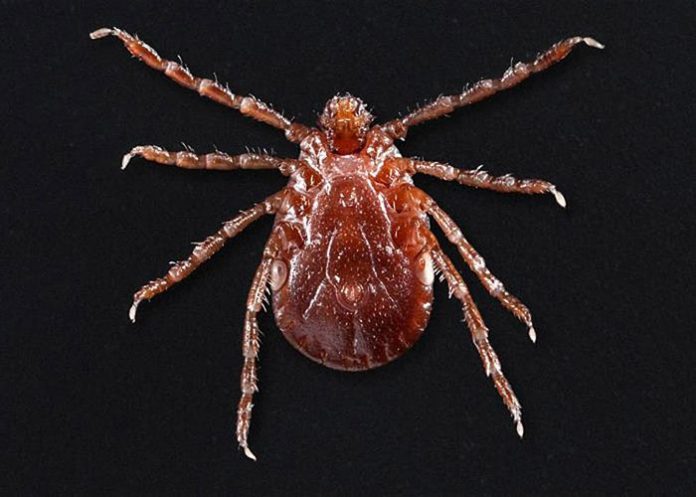
FREEHOLD – The first Asian longhorned tick has been identified in Monmouth County and officials are urging residents to take precautions.
The Asian longhorned tick is not a species that is native to the US but rather East Asian countries, such as China, Japan, or Korea. The tick – also known as Haemaphysalis longicornis – has made its way to several New Jersey counties over the last few months, the most recent discovered in Monmouth County.
The tick was brought to the Monmouth County Mosquito Control Division by a resident who discovered it on the floor in her home. The Monmouth County Tick-borne Diseases Lab at Rutgers University identified the tick as the Asian longhorned tick, which was confirmed by the United States Department of Agriculture’s National Veterinary Services Laboratory.
“We have not yet found other samples of this species in the County,” said Freeholder Patrick Impreveduto. “As always, the Monmouth County Health Department will continue to gather and test all species of common human-biting ticks through our active surveillance program.”
This species can carry with it serious illness such as SFTS virus, which causes severe fevers, according to the Centers for Disease Control and Prevention (CDC). In other parts of the world, such as the East Asian countries this species originates from, the Asian longhorned tick can pose a threat to not only humans but also pets and livestock.
Although the ticks found in New Jersey have tested negative for pathogens, officials still urge residents to protect themselves.
CDC officials offer these tips:
- Avoid grassy, brushy or wooded areas
- Treat clothing and gear with products containing 0.5 percent permethrin
- Use insect repellents registered by the Environmental Protection Agency (these should contain DEET, picaridin, IR3535, Oil of Lemon Eucalyptus (OLE), para-menthane-diol (PMD), or 2-undecanone)
- Check your body, your clothing, gear, and pets for ticks
- Shower after being outdoors.
Diseases transmitted via native tick species – deer ticks, lone star ticks – remain a significant concern for county residents.
If you come across a suspicious tick, bring it to the Monmouth County Mosquito Control Division in a sealed container where experts can identify it.






